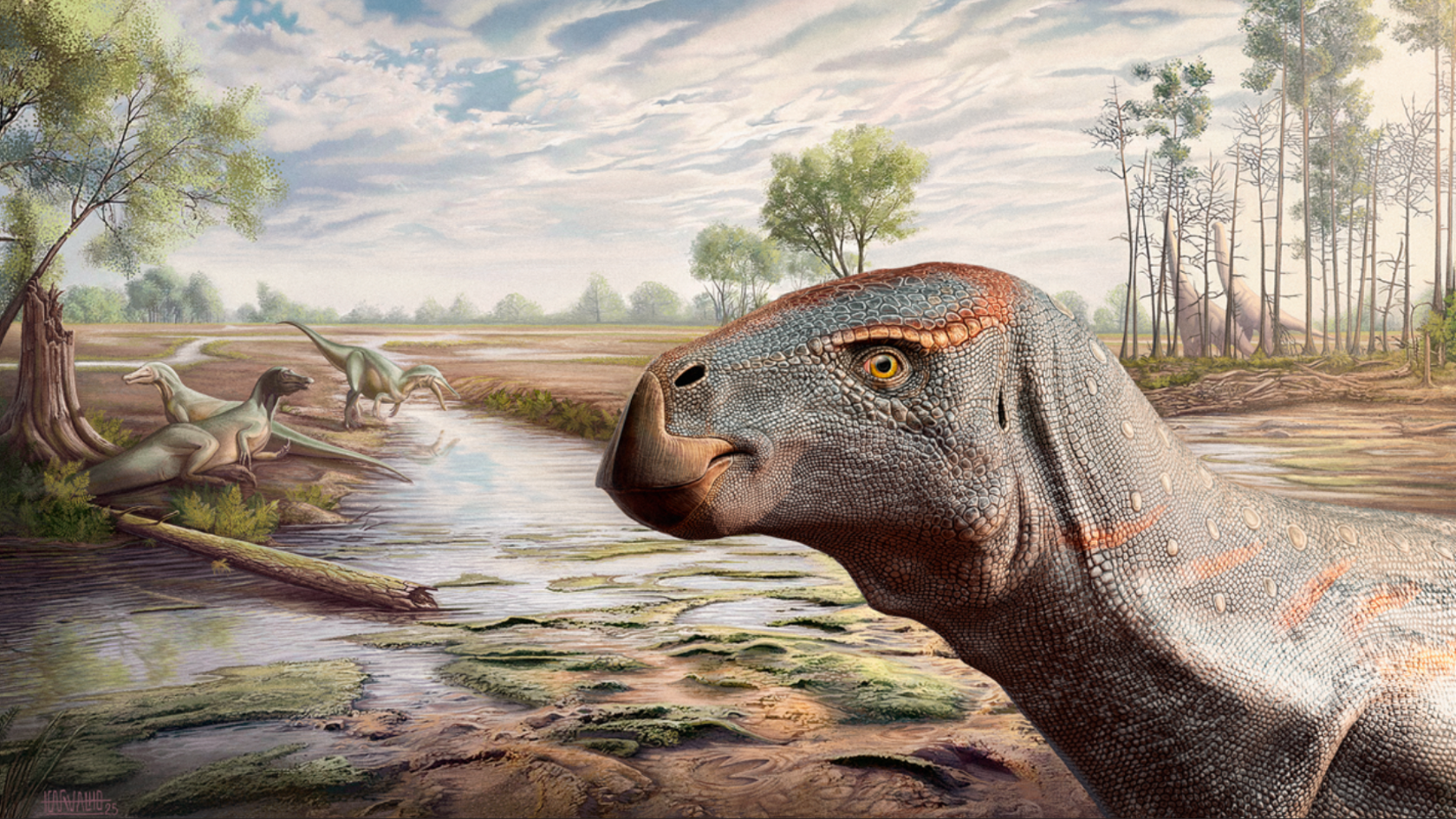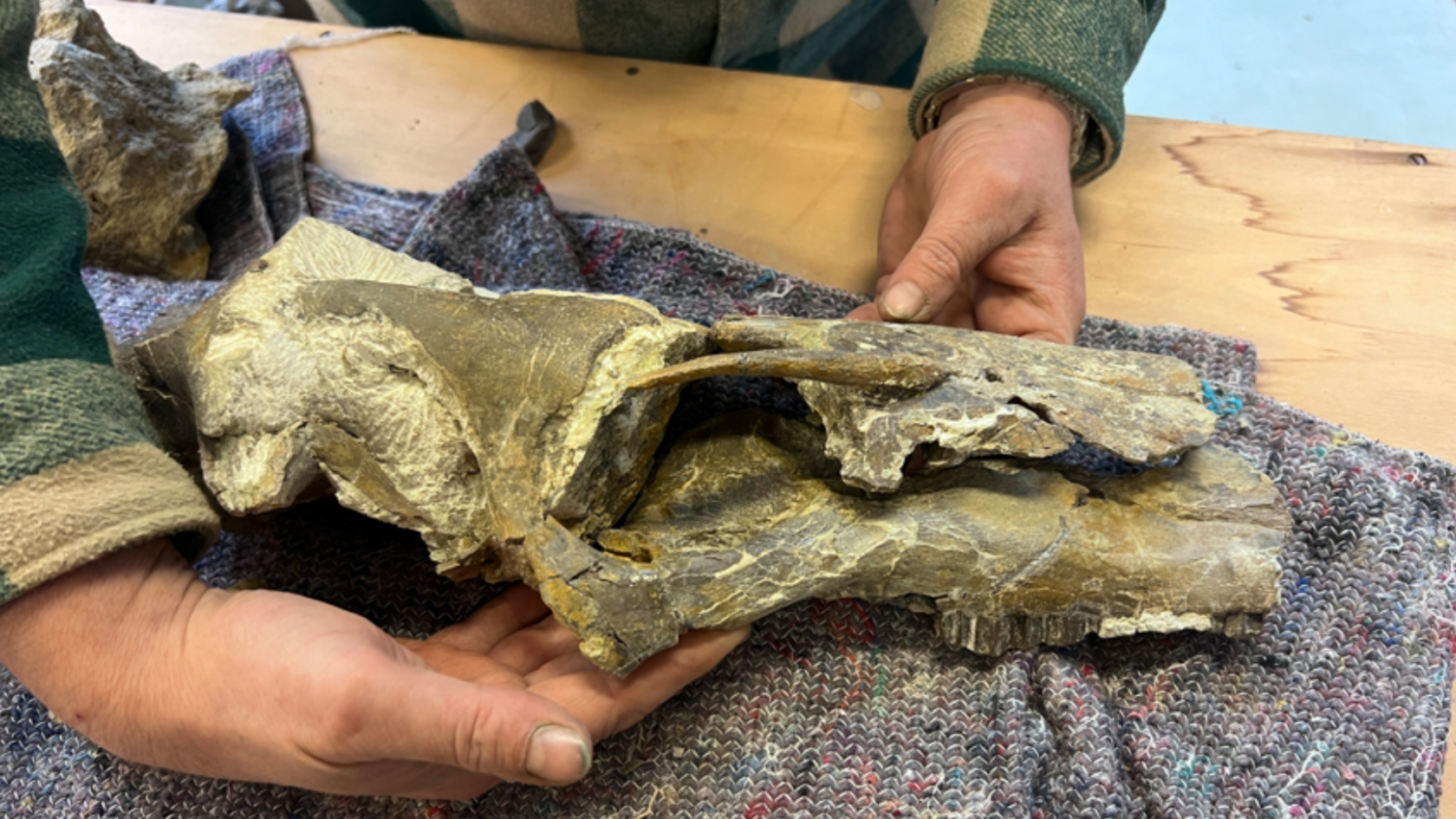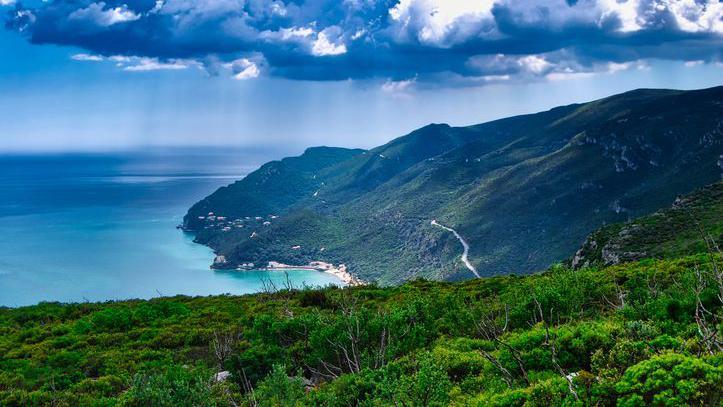New plant-eating dinosaur species discovered in Portugal

An artist's impression of how Cariocecus bocagei might have looked like
- Published
Experts have discovered a new species of plant-eating dinosaur.
It has been named Cariocecus bocagei and scientists say it lived around 125 million years ago, during the early Cretaceous period.
The fossil was found on a beach in western Portugal, known for producing some of the best-preserved dino footprints in the country.
Researchers say the new species belongs to the family of dinosaurs known as Iguanodons.
More like this
'Bizarre' dinosaur had huge neck spikes, new research suggests
- Published27 August
Brand new dinosaur species discovered on the Isle of Wight
- Published22 August
New species of ancient whale discovered on Australia's coast
- Published15 August
What did scientists discover?

Experts say the skull of the fossil is very well preserved.
The discovery was made at a beach close to the town of Sesimbra in Portugal in 2016.
According to experts, the dino fossils were found in a series of early Cretaceous rock layers among invertebrate fossils and remains of ancient fish, crocodiles, pterosaurs and land-dwelling dinosaurs.
An international team of scientists from Portugal and Belgium decided to clean up the fossils and take a closer look - and were surprised with what they found.
Filippo Bertozzo, palaeontologist at the Institute of Natural Sciences and lead author of the study explained: "Only once all the sandstone had been removed, we realised how exceptional the preservation was."
In fact, the skull of the fossil was so well preserved, that scientists were able to identify new features that had never been seen before.
CT scans allowed the team to look at parts of the skull in great detail.

The fossil discovery was made in western Portugal
Bertozzo added: "A skull is always a special find, it tells us far more than isolated bones.
"In this case, we could even trace impressions of the brain and nerves, and reconstruct parts of the inner ear. The structure of the balance organs and auditory nerves gives us clues about how this animal lived and oriented itself."
They also discovered that Cariocecus bocagei had an "unusually low eyebrow bone" - similar to those seen in modern-day eagles.
The new species lived during a time when these plant-eating dinosaurs dominated the European continent, but experts say that they had never been found this far west before.
Bertozzo said: "We already knew species from Belgium, Spain, Britain and France, but Portugal had no formally named species until now. This discovery fills that gap."
